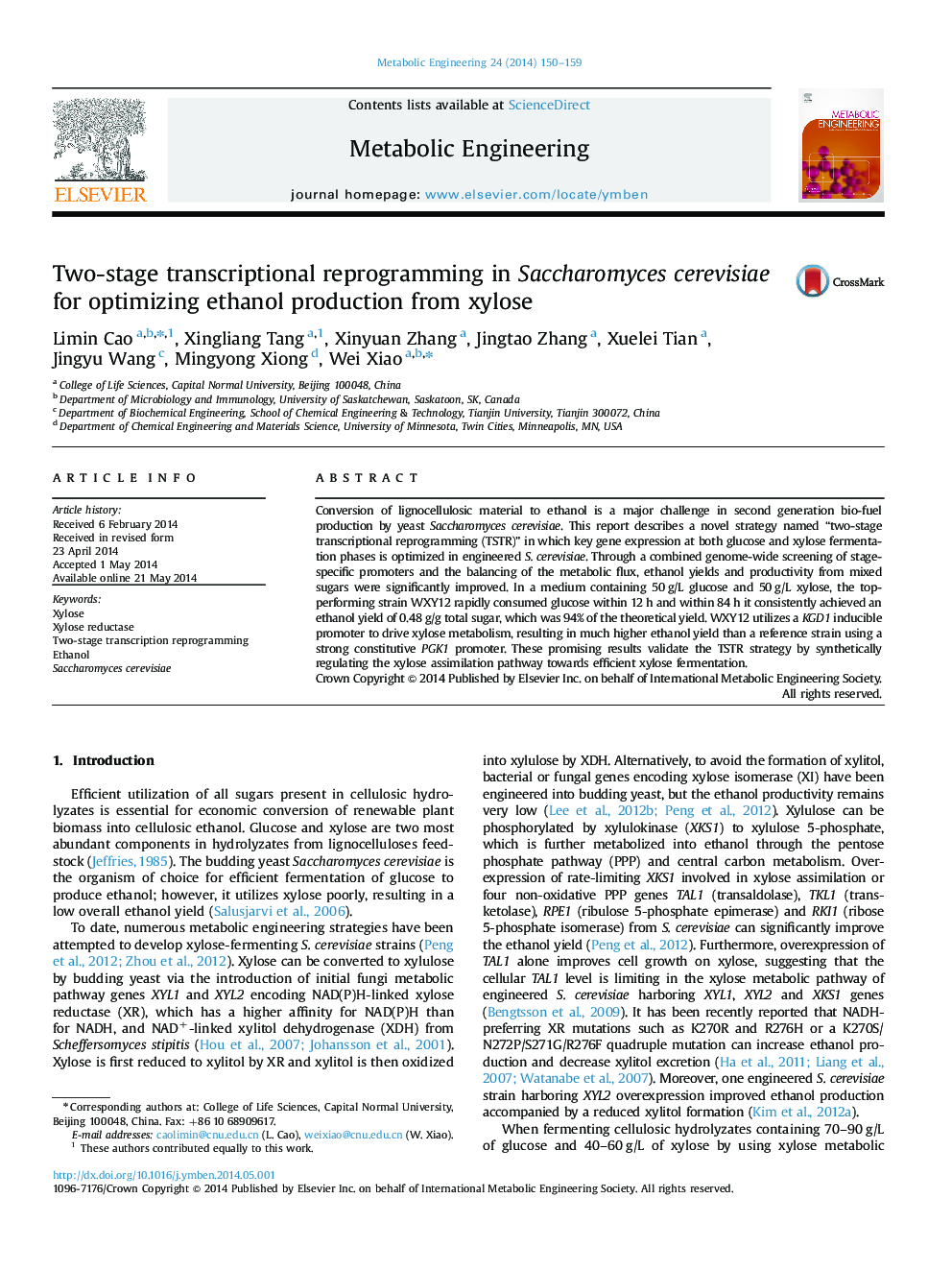| Article ID | Journal | Published Year | Pages | File Type |
|---|---|---|---|---|
| 6494606 | Metabolic Engineering | 2014 | 10 Pages |
Abstract
Conversion of lignocellulosic material to ethanol is a major challenge in second generation bio-fuel production by yeast Saccharomyces cerevisiae. This report describes a novel strategy named “two-stage transcriptional reprogramming (TSTR)” in which key gene expression at both glucose and xylose fermentation phases is optimized in engineered S. cerevisiae. Through a combined genome-wide screening of stage-specific promoters and the balancing of the metabolic flux, ethanol yields and productivity from mixed sugars were significantly improved. In a medium containing 50Â g/L glucose and 50Â g/L xylose, the top-performing strain WXY12 rapidly consumed glucose within 12Â h and within 84Â h it consistently achieved an ethanol yield of 0.48Â g/g total sugar, which was 94% of the theoretical yield. WXY12 utilizes a KGD1 inducible promoter to drive xylose metabolism, resulting in much higher ethanol yield than a reference strain using a strong constitutive PGK1 promoter. These promising results validate the TSTR strategy by synthetically regulating the xylose assimilation pathway towards efficient xylose fermentation.
Related Topics
Physical Sciences and Engineering
Chemical Engineering
Bioengineering
Authors
Limin Cao, Xingliang Tang, Xinyuan Zhang, Jingtao Zhang, Xuelei Tian, Jingyu Wang, Mingyong Xiong, Wei Xiao,
